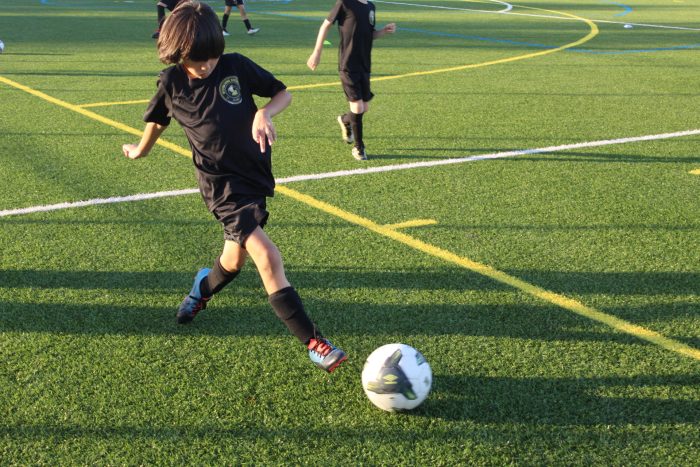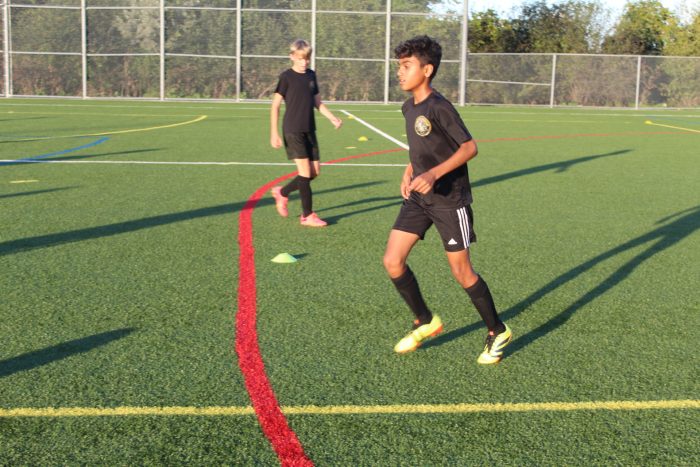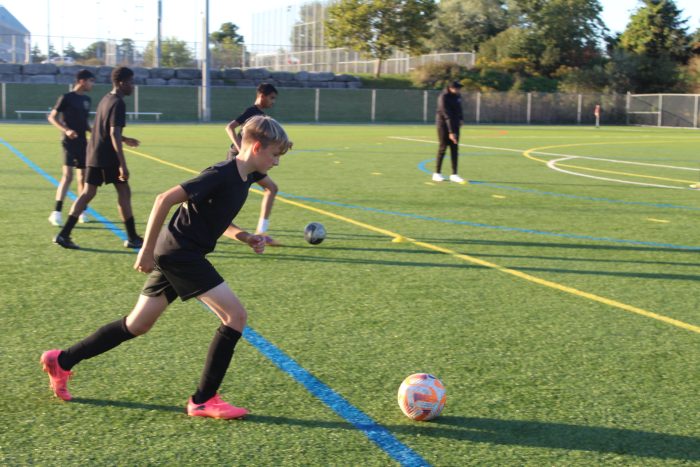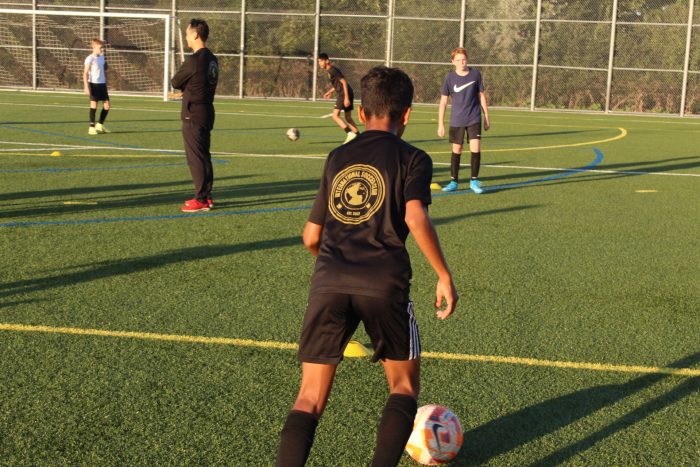October 10, 2024
How playing soccer can keep you stay fit in the winter
Introduction
For young athletes looking to play soccer, focusing on one sport can often feel like the only path to success. However, integrating soccer into their training regimen can be a game-changer, offering numerous physical, mental, and social benefits. Whether your child plays basketball, football, Hockey or any other sport, adding soccer to their routine can enhance their overall athletic performance while keeping the game fun and exciting.

1. Improved Agility and Coordination
Soccer is a sport that requires quick footwork, sharp turns, and precise movements. These skills translate beautifully to other sports. By practicing dribbling, passing, and shooting, young athletes can improve their agility and coordination, helping them perform better in their primary sport.
2. Enhanced Cardiovascular Fitness
Soccer is an excellent aerobic exercise that builds stamina and endurance. The constant movement involved in playing a match—running, sprinting, and changing direction—strengthens the heart and lungs. For athletes who rely on endurance, such as runners or swimmers, this added fitness can be invaluable during competitions.
3. Development of Teamwork and Communication Skills
Soccer is inherently a team sport that emphasizes collaboration. Players must communicate effectively, strategize together, and support one another on the field. These skills are transferable to any sport, where teamwork is essential for success. Young athletes learn to be better teammates, which can also enhance their leadership qualities.



4. Mental Toughness and Resilience
Playing soccer helps develop mental toughness. Athletes learn to handle pressure, overcome setbacks, and work through challenges—all crucial traits for success in any sport. The fast-paced nature of soccer teaches kids to think quickly and adapt to changing situations, preparing them for the unpredictability of competitive play.
5. Fun and Social Interaction
One of the best aspects of soccer is its accessibility and fun factor. It’s a great way for kids to blow off steam and enjoy physical activity without the pressure of formal competition. If Athletes play soccer allows young athletes to make new friends and build connections with peers who share their interests, promoting a healthy social life.
6. Skill Development
Soccer emphasizes a variety of skills that can enhance overall athletic performance. Dribbling improves ball control, passing develops accuracy, and shooting builds strength. These skills can enhance hand-eye coordination and reflexes, benefiting athletes in sports like basketball and baseball.
Tips for Integrating Soccer into Training
- Join a Local League: At International Soccer Club we offer a house league for indvididuals looking to just stay active and better their soccer skills! You can learn more here OR if you’re looking to start playing competitively join our rep league here.
- Schedule Practices: Set aside specific times each week dedicated to soccer practice. This can be done in conjunction with other sports training.
- Focus on Fun: Emphasize the enjoyment of playing soccer. Create games and drills that are engaging and light-hearted.
- Mix Training: Incorporate soccer drills into existing training sessions for other sports. This keeps workouts fresh and exciting.
Conclusion; Athletes Should Play Soccer
Integrating soccer into a young athlete’s routine can provide a wealth of benefits, from improved physical fitness to enhanced mental resilience. Encouraging kids to play soccer alongside their primary sport not only makes them better athletes but also helps them grow as individuals. So grab a ball, head to the field, and let the fun begin!
What Is Recreational Soccer?
Recreational soccer, often referred to as “soccer for fun,” is a non-competitive form of the sport aimed at promoting enjoyment, fitness, and social interaction rather than strict competition. It typically involves informal games, leagues, or pick-up matches that are open to players of all ages and skill levels
What Other Sport Can Hockey Players Play?
Hockey players often enjoy playing soccer on the side. It’s a great way to work on footwork, agility, and coordination while having fun. The dynamic nature of soccer helps improve cardiovascular fitness and overall athleticism, which can benefit their hockey performance. Plus, it’s a fantastic way to bond with teammates in a more relaxed setting!
What Other Sport Can Basketball Players Play?
Basketball players often play soccer as a side sport, too! It helps them enhance their agility, footwork, and hand-eye coordination. The fast pace and team dynamics of soccer can improve their stamina and teamwork skills, all while providing a fun break from basketball training. Plus, it’s a great way to stay active and connect with teammates in a different environment!
Which sport is the best for kids?
Soccer is one of the best sports for kids! It promotes teamwork, develops coordination, and builds cardiovascular fitness. Kids can enjoy playing at various levels, making it inclusive and fun. Plus, it helps them learn important social skills while having a blast on the field!
